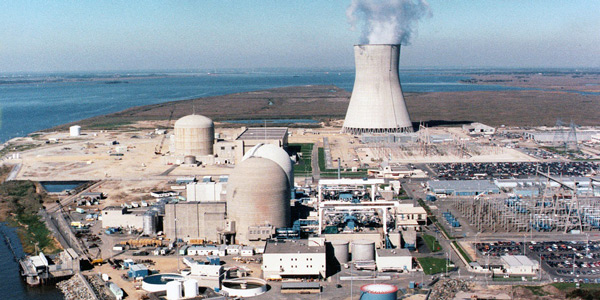By Michael Brooks
New Jersey lawmakers on Thursday once again voted to advance legislation out of committee that would provide subsidies to the state’s nuclear fleet.
A previous effort foundered earlier this year when a key lawmaker declined to post a similar bailout bill for a vote before the close of a lame duck session. (See NJ Lawmakers Pass on Nuke Bailout in Lame Duck Session.)
But this time, the Assembly Telecommunications and Utilities Committee (A2850) and the Senate Budget and Appropriations Committee (S877) approved bills that also contain incentives for renewables and energy efficiency, including a provision in the Senate bill that would sharply increase the state’s renewable portfolio standard to 35% by 2025 and 50% by 2030.
The nuclear portion of the legislation remains identical to previous versions: Nuclear plants that the Board of Public Utilities finds economically unviable would receive funding through a 0.4-cent/kWh charge on ratepayers’ bills.
During a nearly four-hour joint hearing of the committees, opponents of the legislation urged lawmakers to slow down and allow the board and the Division of Rate Counsel to study the disparate nuclear and renewable components of the bills and their impact on ratepayers. They criticized the rush to pass the nuclear subsidies, asserting that the renewable elements of the legislation were included without enough consideration.
“This is complex stuff,” said Sarah Bluhm of the New Jersey Business and Industries Association. “I think we really have to take a step back, because what we’re missing from this is comprehensive planning.”
Dennis Hart, executive director of the Chemistry Council of New Jersey, expressed concern that the group’s member companies that built their own onsite solar facilities and set their own energy-efficiency standards would be paying more under the legislation. Along with several other speakers, he noted that it took Illinois and New York several years to enact their zero-emission credit programs.
“The BPU clearly needs to study the issue to assess the need for a subsidy before the process even starts,” said Scott Ross of the New Jersey Petroleum Council. “In particular, we believe the New Jersey Rate Counsel should have a seat at the table during these meetings.”
Legislators who voted against the bills expressed similar sentiments.
“I support the nuclear power plants, but there’s way too many unknowns,” Assemblyman Harold Wirths said.
“There’s way too much in this bill that it’s impossible for the ratepayers to follow what’s going on,” said Assemblyman Edward Thomson.
A full vote on the Senate bill had already been scheduled for Monday, but senators ended up shelving it until at least next month. “It’s a big bill. It’s a complicated bill. And we’re going to continue to press forward,” Senate President Steve Sweeney (D), the primary sponsor of the bill, told The News & Observer. “Like everything else, we’re adjusting things and look forward to getting it passed.”





